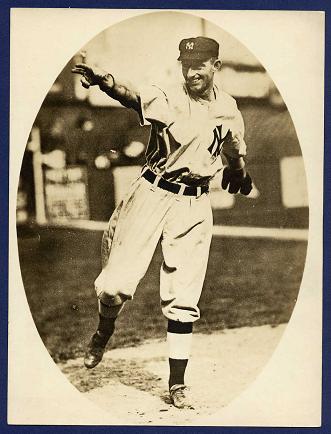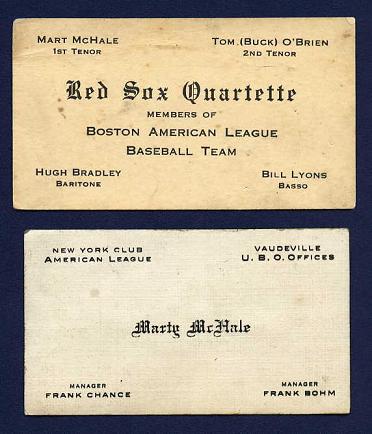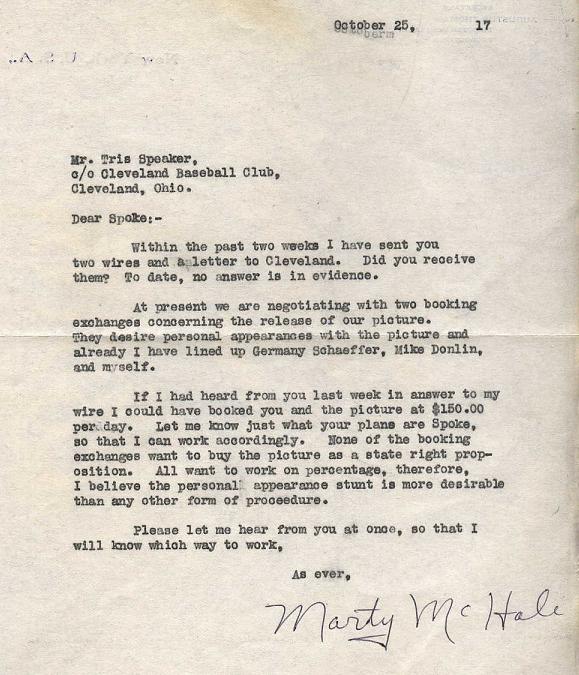
Marty McHale was a journeyman pitcher who played from 1910 to 1916 for the Boston Red Sox (in two stints), Jersey City (International League), New York Yankees and Cleveland Indians. Most of all, he seemed to have fun. He formed a singing quartette while with the Sox in 1910, moonlighted in vaudeville while pitching for the Yankees (either in 1913 or 1914, and later), and even jumped into the newly-born film "industry" during the teens when his baseball career drew to a close. He later went on to become a newspaper reporter and a stockbroker.
He was considered such a good prospect for the mediocre Yanks, that he pitched in the 1914 season opener -- a picture of which is above.
Variety dubbed him the "Baseball Caruso" (with other reviewers referring to his Irish Tenor as the "Irish Thrush" and Babe Ruth, himself, canonizing McHale as the "best goddamn singer I ever heard").
Playing for Boston in 1910, McHale was a co-founder of the Red Sox Quartett, showcasing the talents of "Mart" McHale (1st Tenor), Tom "Buck" O'Brien (2nd Tenor and fellow Sox pitcher), Hugh Bradley (Baritone and outfielder), and Sox second baseman Larry Gardner. Bill Lyons replaced Gardner in the act in 1911, becoming Basso, with the Red Sox signing him to a professional baseball contract to keep the Quartette solely comprised of Sox players! When McHale joined the rival Yankees in 1913, the group quietly disbanded.

McHale remained in show business when he moved to New York and moonlighted in vaudeville. Interestingly, despite his business card mention of Yankees manager and future HOFer, Frank Chance, McHale joined forces not with a fellow Yankee but with a New York Giant. Together with famed Giants outfielder, "Turkey" Mike Donlin, Mchale established a highly successful act entitled "Right Off The Bat."
After ending his undistinguished baseball career with Boston and Cleveland in 1916, McHale leapt into the film business (as did Donlin), as can be seen from this letter shown below. In it, McHale implores Cleveland star Tris Speaker (to whom he refers as "Spoke") to join himself, Donlin and Tigers regular, Germany Schaeffer for appearances to promote an early movie after the close of the 1917 baseball season. This letter was typed on the back of letterhead from the All Star Feature Corporation of New York.


Also in 1917, McHale joined the army and served as Lieutenant in the 22nd Regiment of Engineers during World War I.
Post-War, McHale became a journalist for the New York Evening Sun, often covering baseball.
By 1920 he moved on to become a stockbroker, eventually launching his own brokerage house, M.J. McHale Company Investments and Securities of New York. After more than 50 years at the helm of his own firm (and seven in retirement), McHale died in 1979 at the age of 90.
Robert S